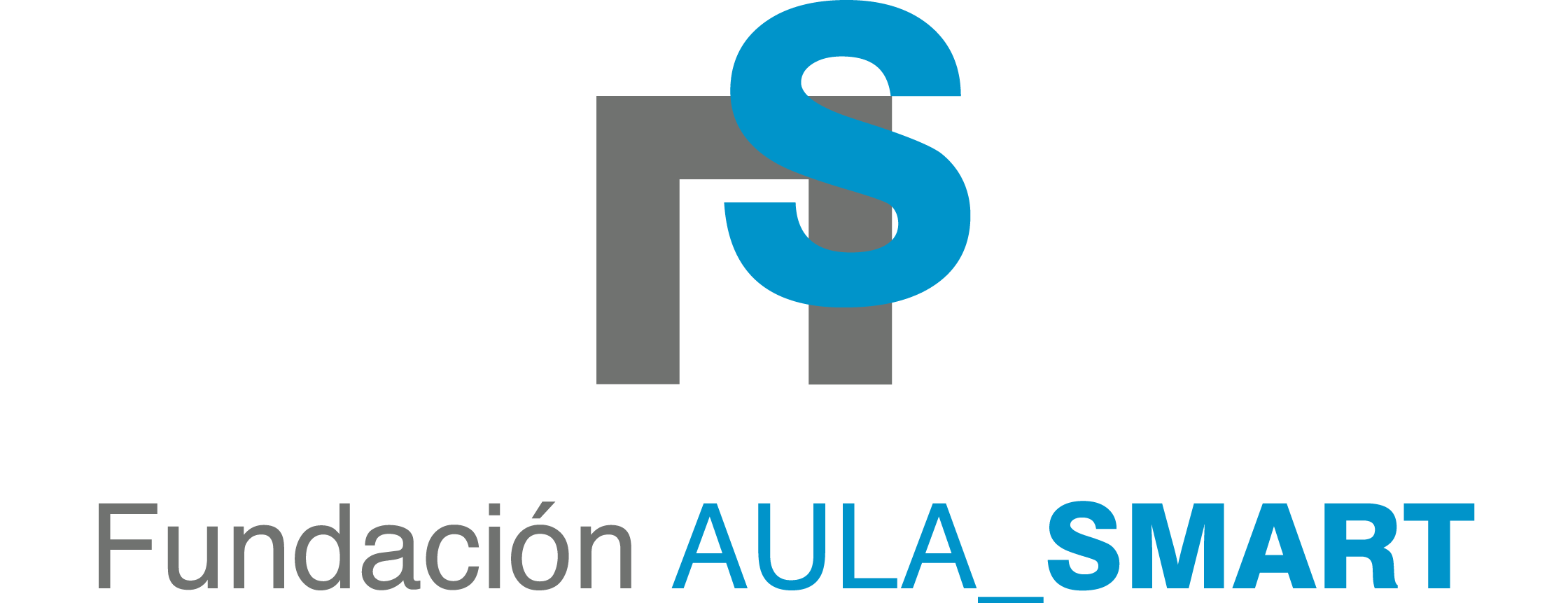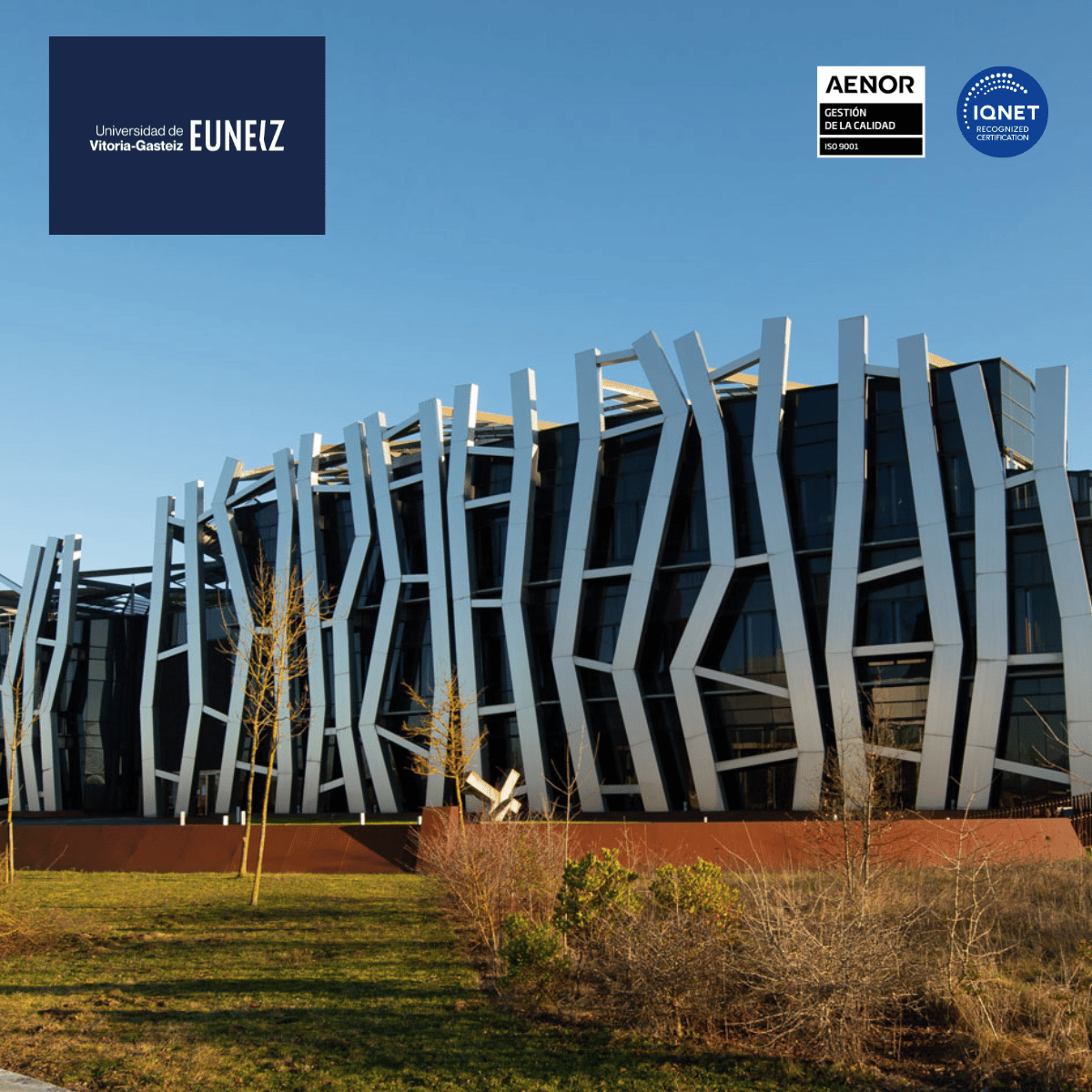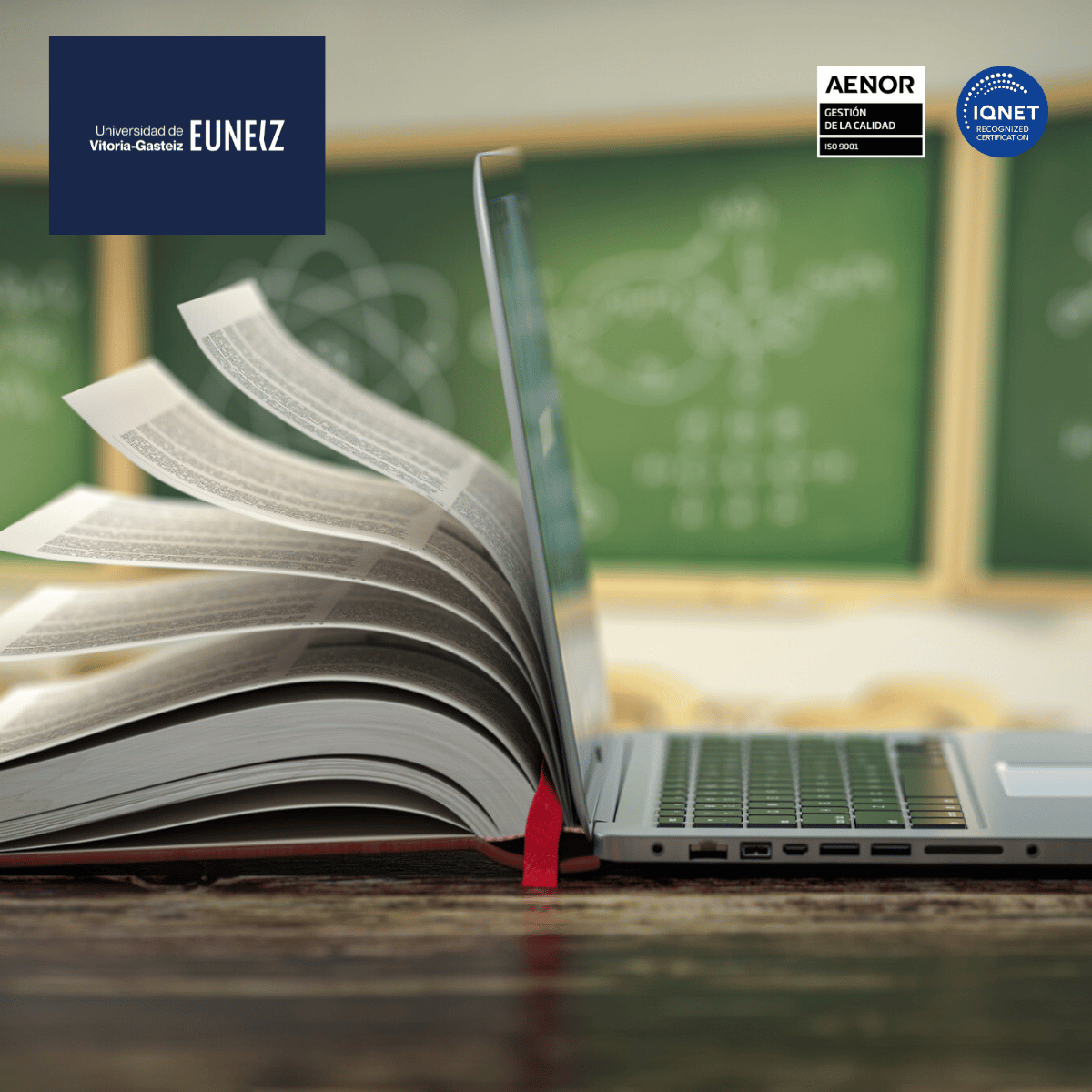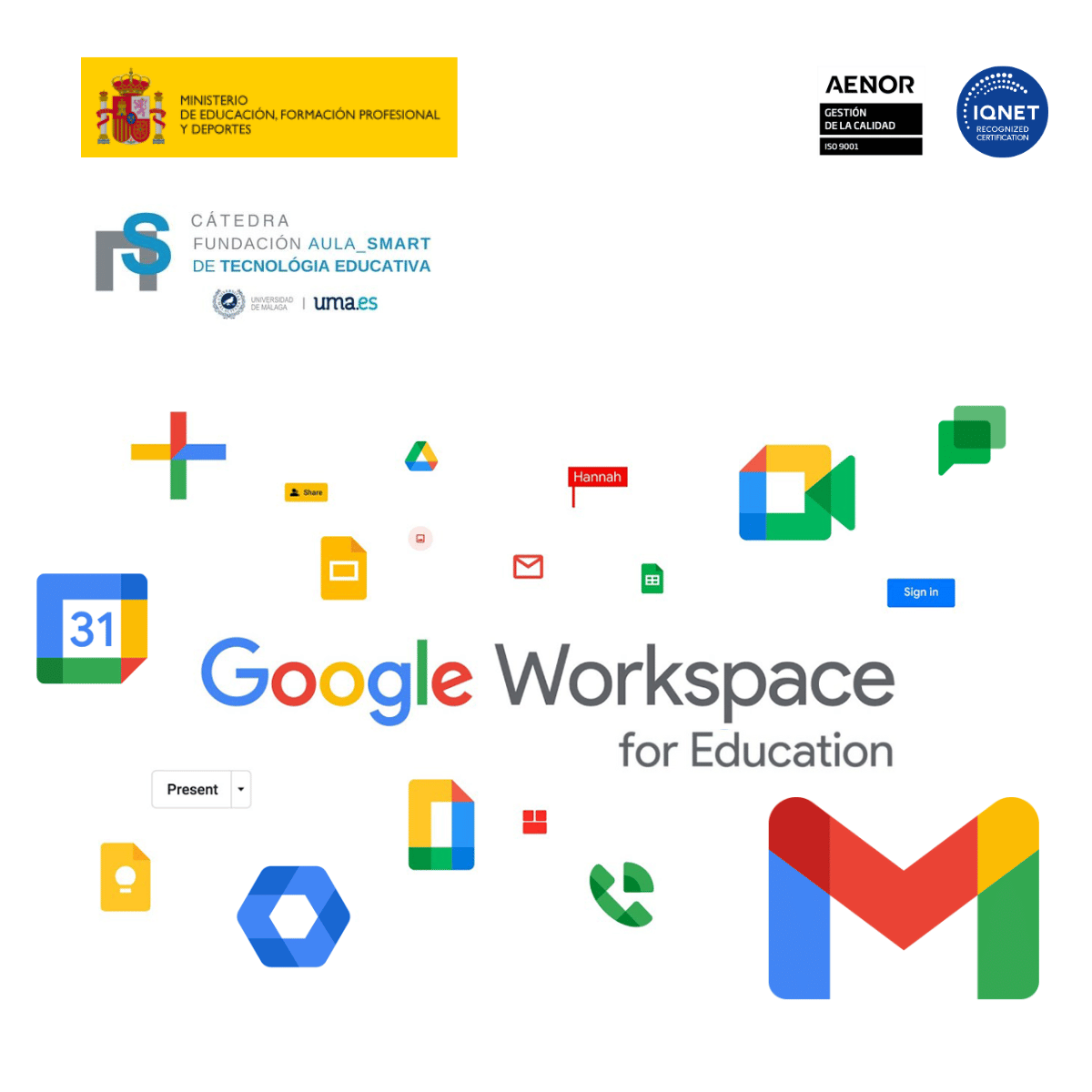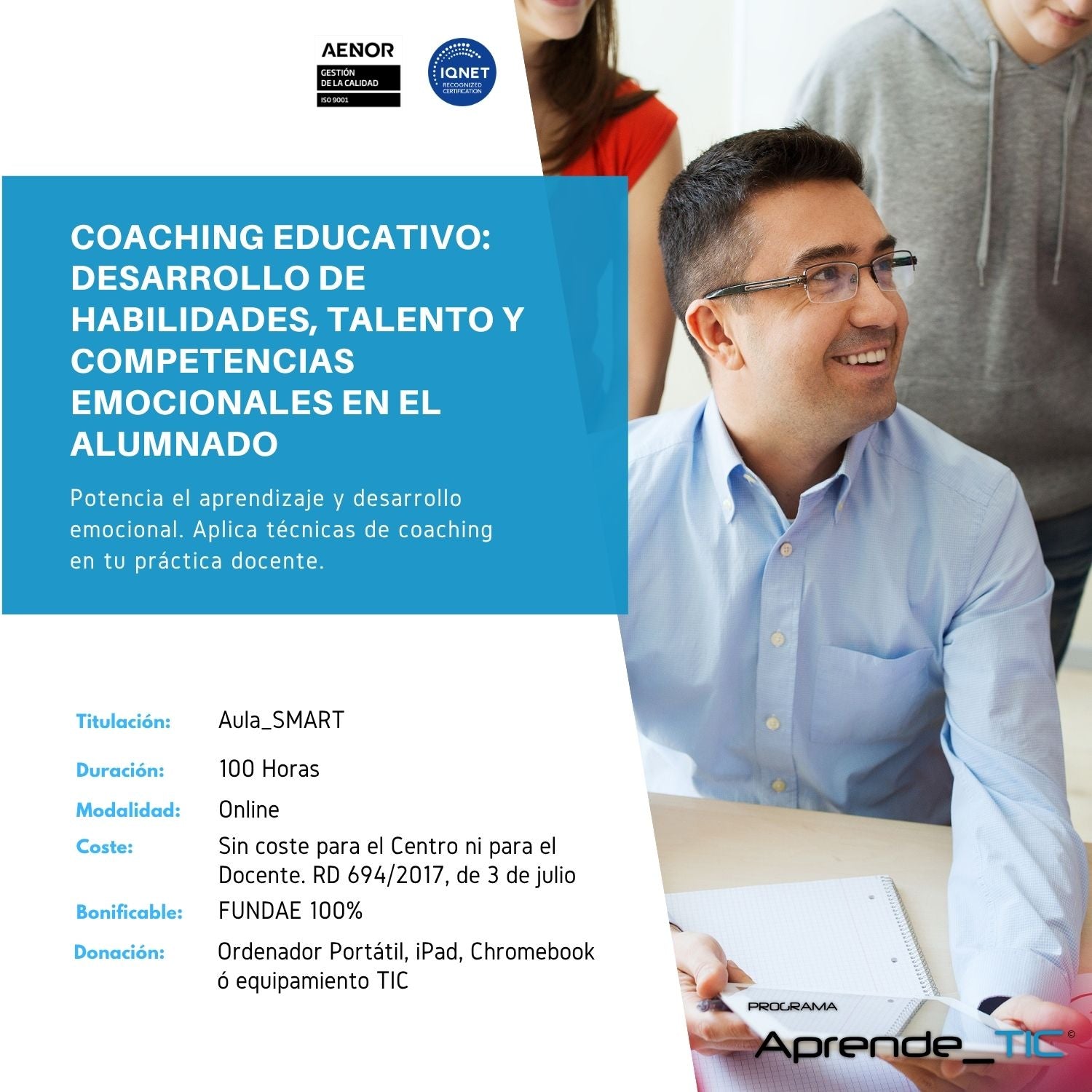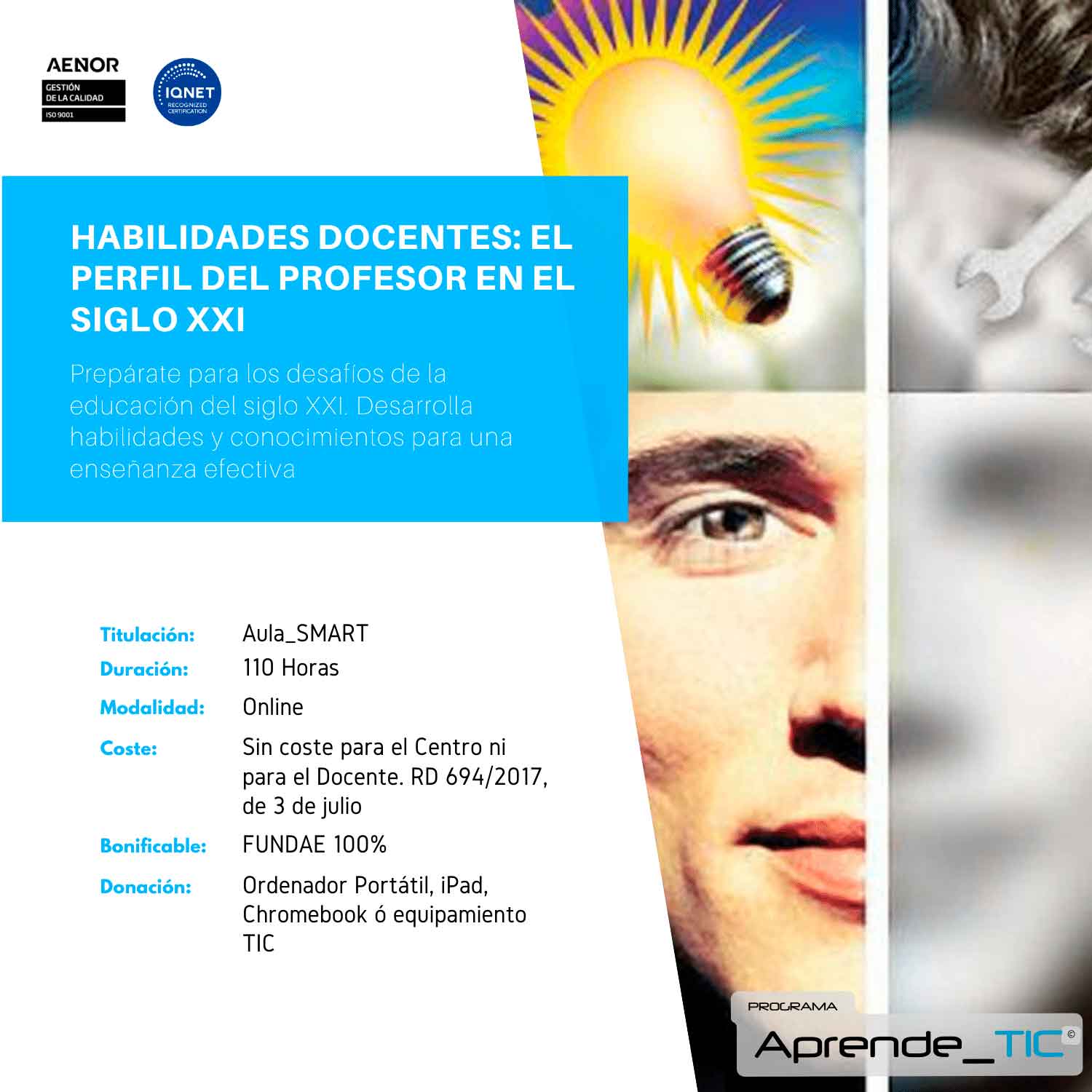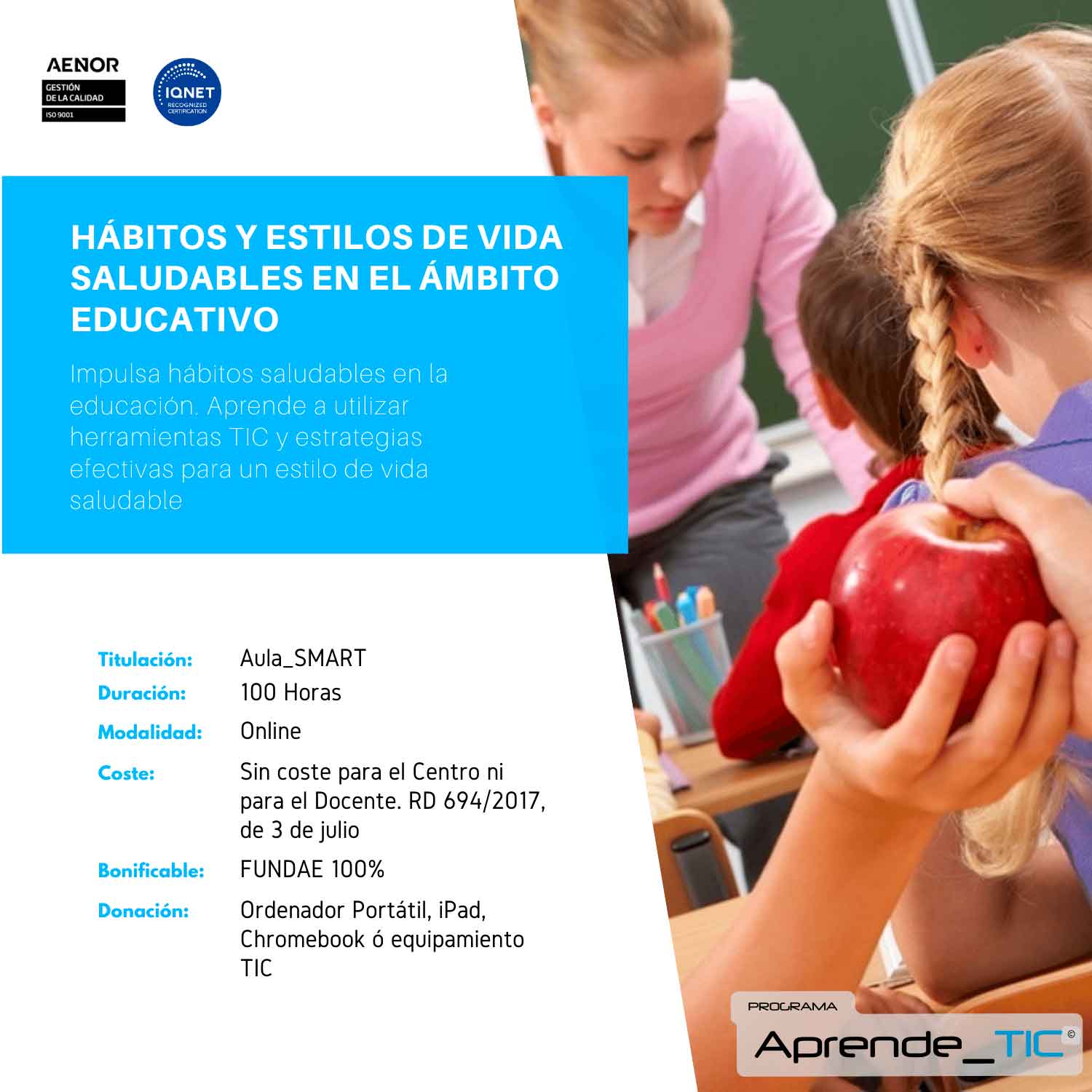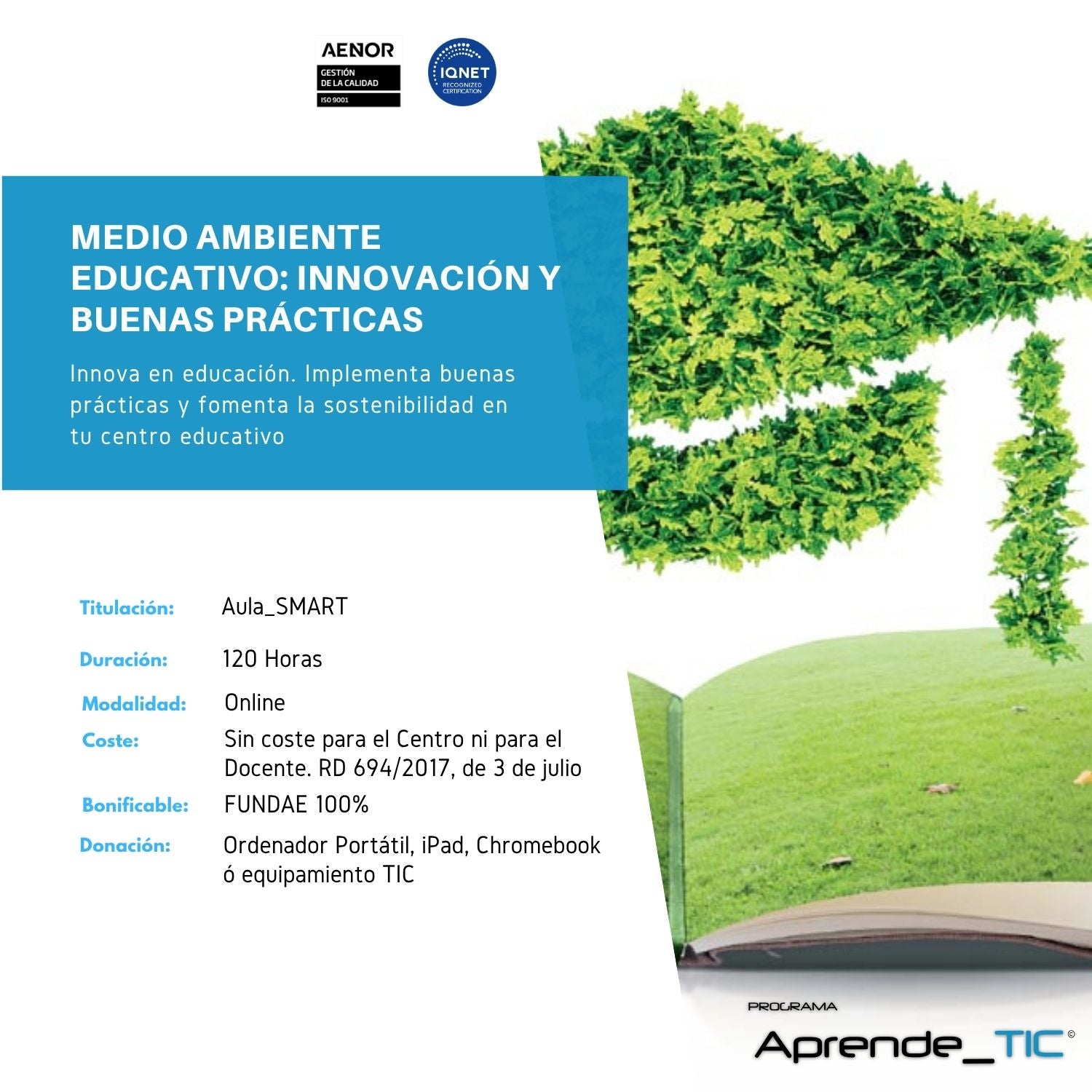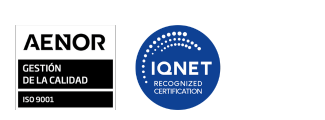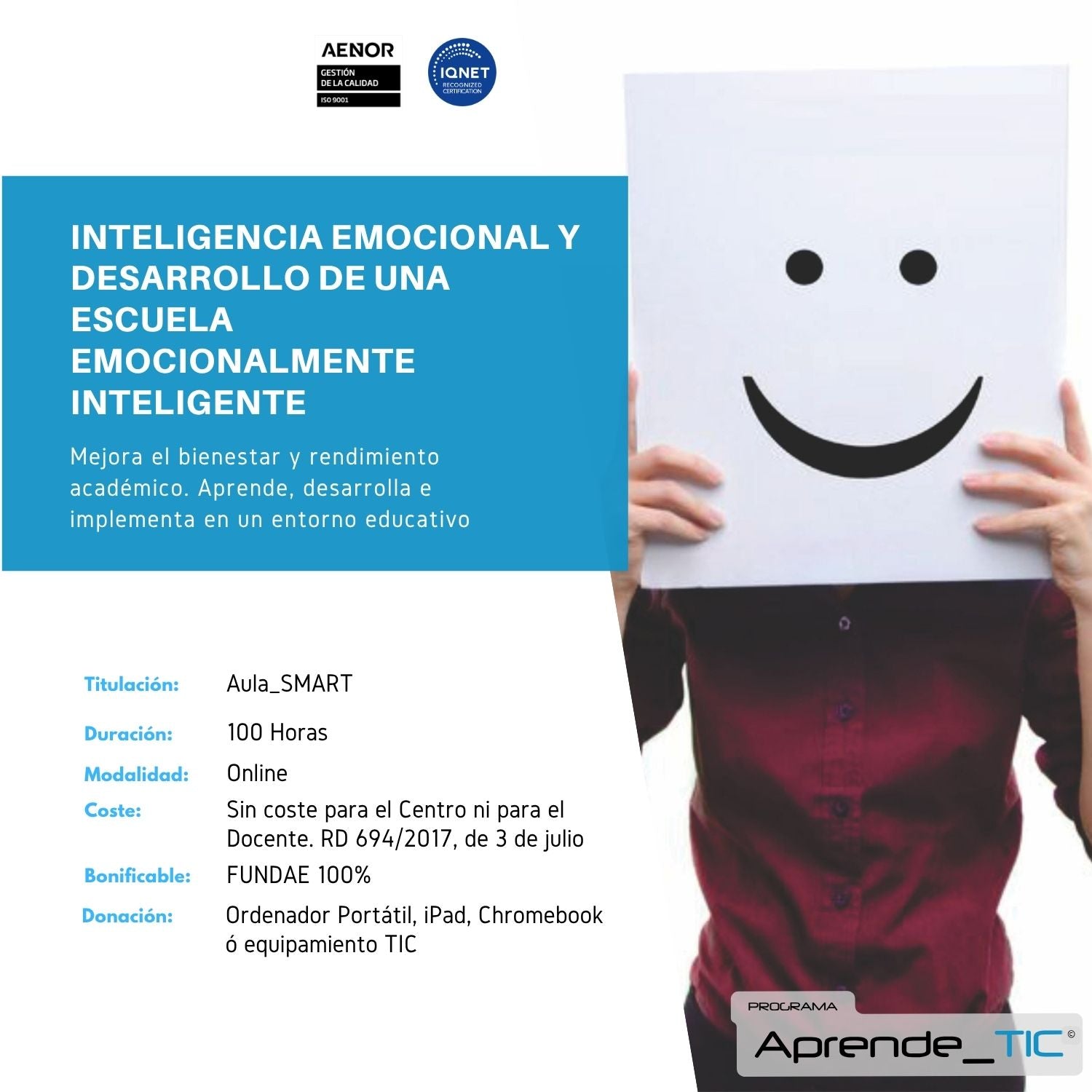
University Specialization Course in:
Emotional intelligence and development of an emotionally intelligent school
Develop an emotionally intelligent school with our emotional intelligence course! Learn to implement programs and tools to improve emotional well -being in your educational center. Online course, 100% bonus and university degree. Sign up now and receive a free ICT team!
University degree obtained
Date start courses
(*) No cost to the center or the teacher according to RD 694/2017, of July 3.
(**) For students who are not going to take the course through their center

Emotional intelligence and development of an emotionally intelligent school
Goals

Emotional intelligence and development of an emotionally intelligent school
What prepares you

Emotional intelligence and development of an emotionally intelligent school
Who is it addressed

Emotional intelligence and development of an emotionally intelligent school
Methodology
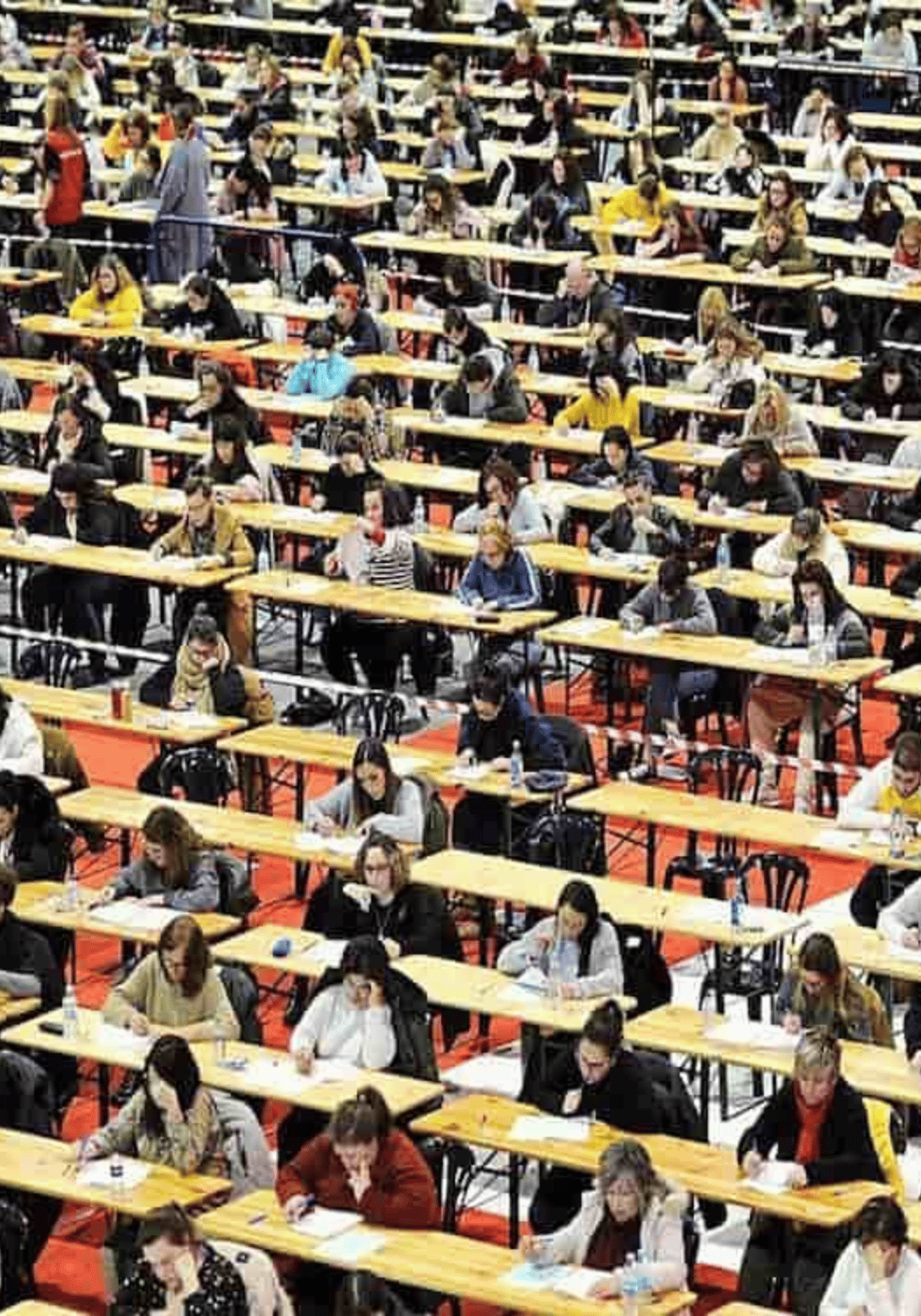
Emotional intelligence and development of an emotionally intelligent school
Official character
Emotional intelligence and development of an emotionally intelligent school
Syllabus
Download the agenda in .pdf format
Topic 1
Topic 2
Topic 3
Topic 4
Topic 5
Topic 6
Topic 7
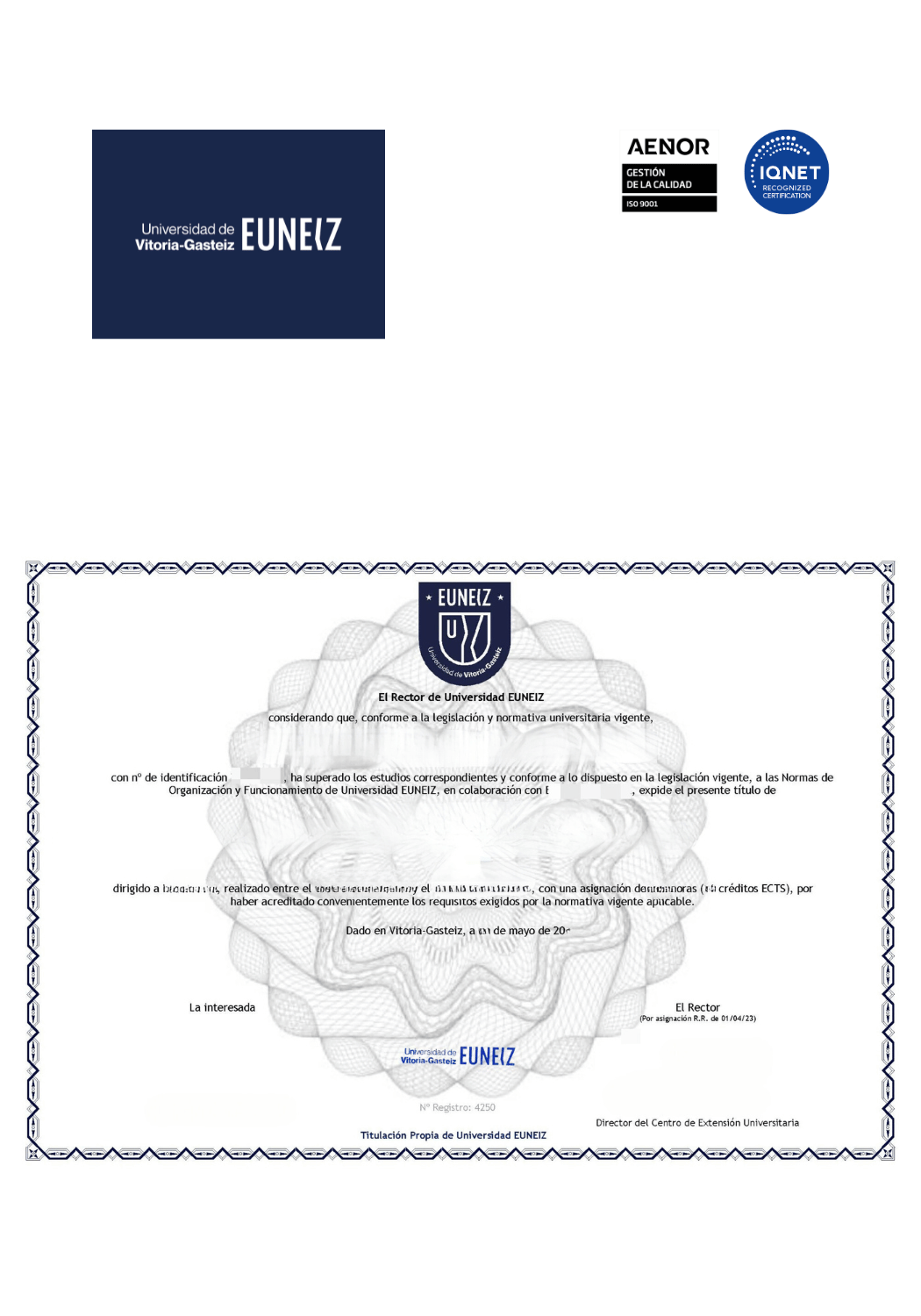
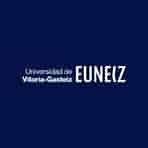
Emotional intelligence and development of an emotionally intelligent school
Degree
Emotional intelligence and development of an emotionally intelligent school
Do you have any questions about this course?
You can send us your consultation by filling out this form or in the following ways:
- Through the phone (+34) 951 411 800
- Through email
comunicacion@fundacionaulasmart.org
